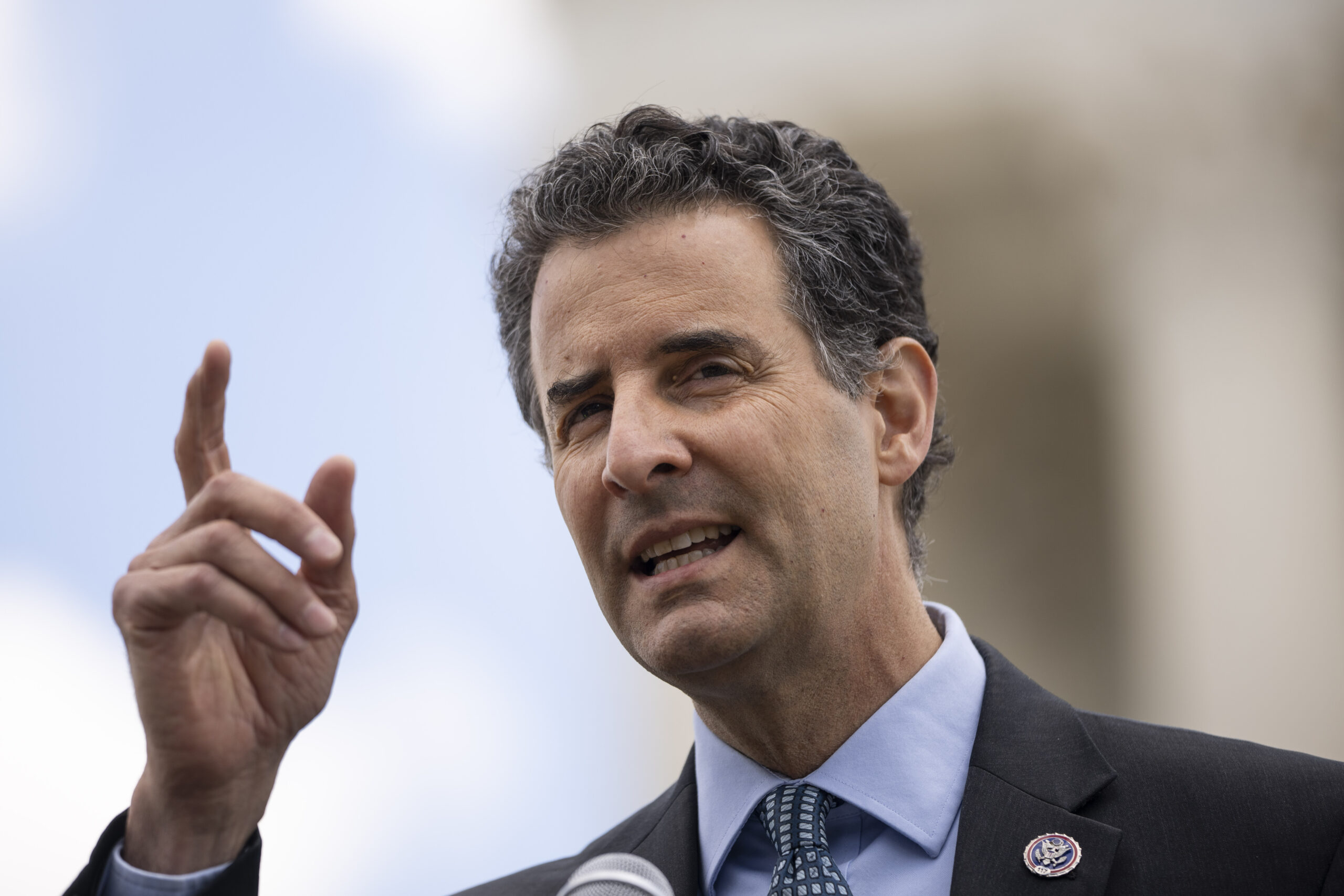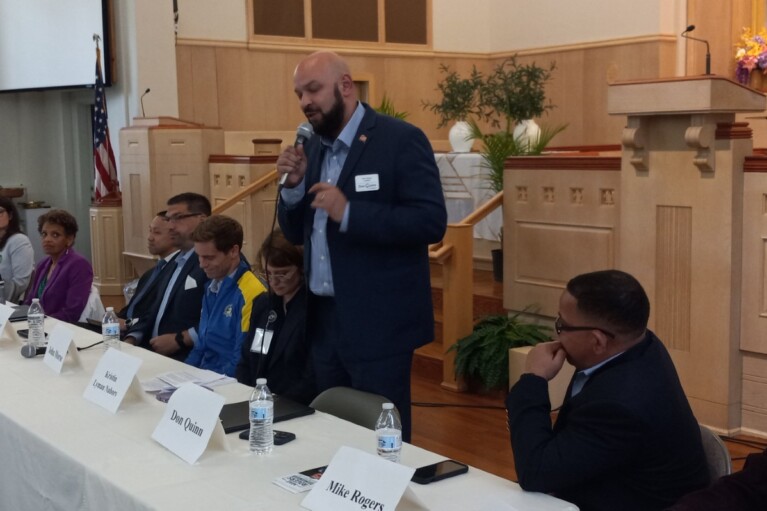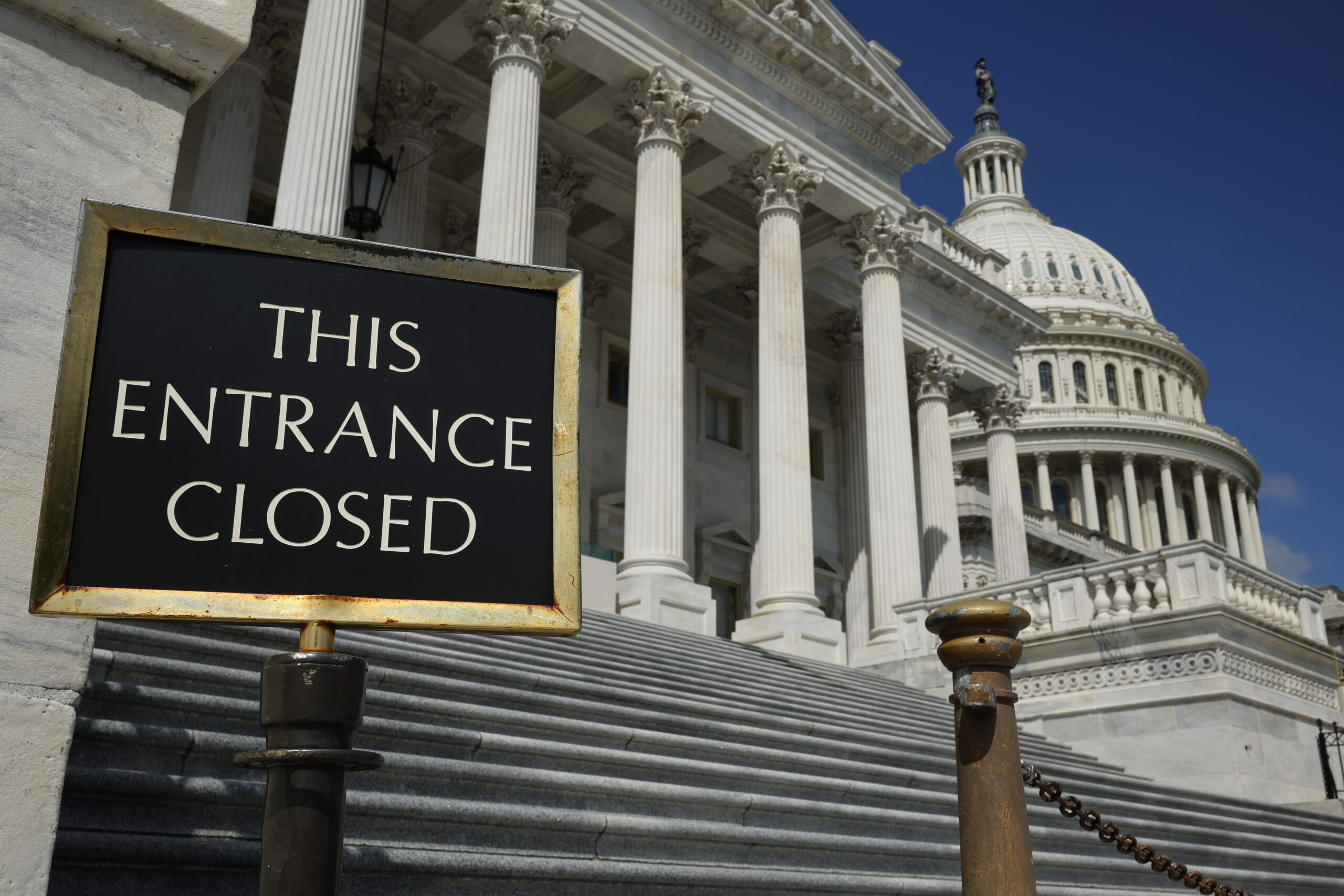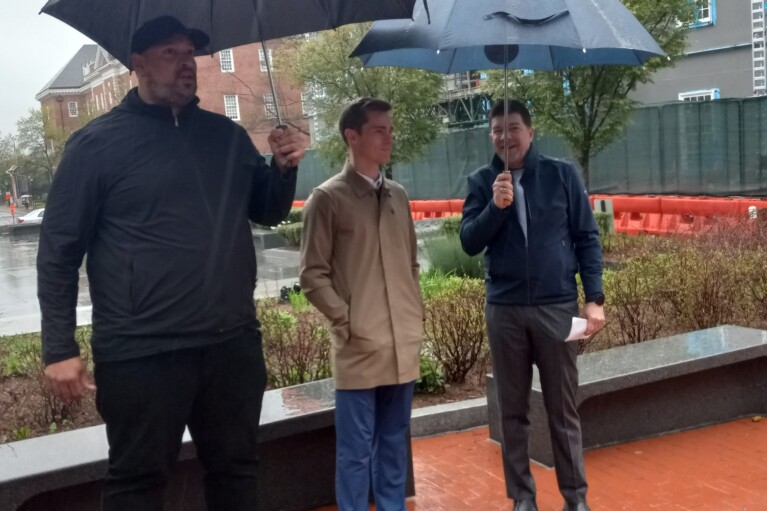
One member of Maryland’s eight-man congressional delegation, Rep. David Trone (D-6th), is running for U.S. Senate. Another, Rep. Jamie Raskin (D-8th), thought seriously about a Senate bid before deciding to seek reelection.
Two members of the delegation, Rep. Steny Hoyer (D-5th), who is 84 years old, and Rep. Dutch Ruppersberger (D-2nd), who is 77, are the constant objects of retirement speculation.
And what about Congressman John Sarbanes (D-3rd)? It has long been assumed that he’d like to run for Senate someday — and after all, it’s his late father’s old Senate seat that is open in 2024, with three-term Sen. Ben Cardin (D) set to retire.
On the other hand, Sarbanes raised a pittance in the second quarter of this year, just over $2,000. And he appears to be winding down his campaign bank account, which has prompted a different sort of speculation.
But in a recent interview with Maryland Matters, Sarbanes, 61, clarified his political plans and renewed his vow to push for his top policy priorities, which starts with political reform, moves to the Chesapeake Bay, and includes expanding health care access.
To the possible disappointment of ambitious politicians in Anne Arundel and Howard counties, he says he isn’t going anywhere.
“I always come off each cycle looking forward to the next campaign,” Sarbanes said.
Since he was first elected in 2006 to succeed Cardin — who succeeded his father, former Sen. Paul Sarbanes (D) that year — the congressman’s 3rd District has taken dramatically different shapes. From 2011 until the end of last year, it was considered one of the most awkwardly drawn districts in the U.S., resembling a pterodactyl, and taking in five different jurisdictions.
Maryland’s newest congressional map, which went into effect for the 2022 election, created far more compact districts — and for Sarbanes meant that about 60% of his district is new. As a result, he has spent the first half year of the new congressional term on the prosaic but necessary task of getting to know his new constituents. He’s met with about 75 local groups so far.
To turbocharge that effort, Sarbanes has held three tele-town halls. It’s a somewhat impersonal way of familiarizing himself with his district, but has helped reach a critical mass of several thousand constituents so far.
“It’s a way we can quickly put ourselves in front of people at scale,” he said. Sarbanes and his staff introduce themselves and lay out the range of services they’re able to provide. “We’ve gotten a very good response.”
One other consequence of the new district: Sarbanes no longer represents himself. His Towson home is now in the 2nd District, which is Ruppersberger’s.
“It’s weird in some ways,” the congressman conceded. But, he notes, his districts always take in diverse territory where he doesn’t live, but that doesn’t impede his ability to become familiar with his constituents and their most pressing concerns.
“The most important thing is, I’ve been on the ground, meeting constituents and trying to take care of them,” Sarbanes said. “If they live in my district, I’m going to respond to them and I think we have a good track record in that regard.”
Sarbanes has never had to especially sweat reelection, and the 2024 election cycle should be no different. He has become the top advocate for election reform in the House of Representatives, and his relatively safe district enables him to put his money where his mouth is — or to take it away, to be more accurate.
Sarbanes hasn’t accepted campaign contributions from political action committees for several election cycles, and that’s one of the reasons why he has taken in so little money since the beginning of the year. Some PACs give to congressional incumbents almost automatically, whether they’re solicited for a donation or not, and that gives many members fatter war chests.
“I typically give my individual supporters a break to catch their breath,” Sarbanes said. “I think the constant barrage of fundraising appeals do wear them out. At the end of the fundraising quarter, I’m not going to tell you the world’s going to end if you don’t give.”
In the previous Congress, Sarbanes was the lead sponsor of H.R. 1 a sweeping political reform package that addressed everything from voters’ rights to partisan gerrymandering to campaign finance reform. It passed the House but stalled in the Senate.
Last month, Sarbanes and his Democratic colleagues reintroduced the bill as the Freedom to Vote Act. With Republicans now controlling the House chamber, the bill is going to be designated H.R. 11, the lowest number Democrats can get for a piece of their legislation — but a sign of their strong and ongoing commitment to the policy reforms.
Sarbanes is realistic about the bill’s prospects, with the House under GOP rule and Republican senators able to block the measure through a filibuster (the Senate bill is S. 1, as it was in the previous Congress). But he sees value in promoting and pushing the legislation as much as possible.
“At every stage, it’s been about providing a contrast,” he said. Republicans are poised to pass an election bill of their own, which he asserts “would create the condition for more harassment of poll workers.”
Sarbanes believes that Democrats up and down the ballot, including President Biden, will be able to use the measure to their benefit in the upcoming election by arguing that Republicans oppose these reforms because they are beholden to special interests.
“We know from polls that the public is very worried about the state of our democracy and its component parts,” Sarbanes said. And it’s part of what fuels his desire to push campaign finance reforms and eschew PAC money in his own campaigns.
“I continue to be a student of just how money affects our politics,” he said. “That’s why I’ve tried to be a champion of these reforms.”
Republicans ‘need to feel the heat’ on possible shutdown
Sarbanes also recently reintroduced his other top legislative priority, a bill to create a Chesapeake National Recreation Area. The bill has one Republican sponsor cosponsor in the House, Rep. Rob Wittman of Virginia, who Sarbanes calls “a really good partner for us,” and he believes the bill could find some momentum soon — perhaps attached to a bigger piece of legislation, rather than as a standalone bill. Even then, he recognizes that “a fairly lengthy and exhaustive process with the Park Service” would follow to implement the measure, which is designed to increase public access to the Chesapeake Bay throughout the region.
Sarbanes, who is clearly a cerebral workhorse in a chamber full of blustery show horses, knows a thing or two about taking the long view on legislation. His father was equally low-key and studious, and didn’t pass the most consequential legislation of his career, to reform the U.S. financial industry, until he had been in the Senate for over a quarter century.
Meanwhile, Sarbanes is tending to his work on the House Energy and Commerce Committee, one of the most powerful in Congress, and with the broadest portfolio. He said he’s hoping the panel can produce bipartisan legislation to expand mental health services in the U.S.
But in the short term, Sarbanes, like many of his colleagues, is focused on whether Congress can reach a spending deal before the next fiscal year is due to begin on Oct. 1, amid fears that another federal government shutdown is imminent. Sarbanes said House Republicans will be responsible if the fiscal year begins without a spending plan in place.
“It’s not going to be easy,” he said. “The Republicans in the House have shown a willingness to be leveraged by a small group of their caucus. I believe the Senate can be a moderating influence. But we want to make it clear to the public that this shutdown is the responsibility of the House Republicans. They need to feel the heat from the public.”
Even if the Senate seems like an island of relative sanity to many Democrats, Sarbanes said he has no desire to become part of that exclusive club — in this election cycle or any other.
“I decided a few years back that was something that I wasn’t drawn to,” he said.




 Creative Commons Attribution
Creative Commons Attribution